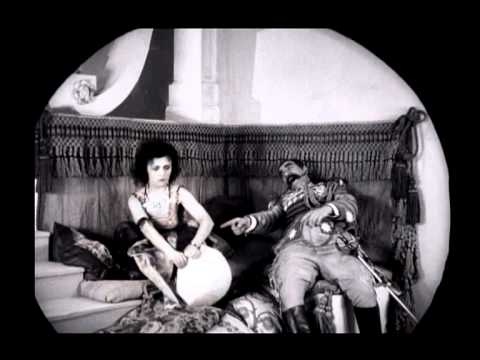The Wildcat was the third from the last film
that Ernst Lubitsch was to direct in Germany. By this time a few of his
films had exhibited in the USA and been hits. These were his epic films
though like Anne Boleyn, Sumurun, Madame DuBarry and Carmen - so in America
he was being called the Griffith of Europe as most people were completely
unaware of his droll delicious comedies. Lubitsch was also looking around
him in Germany and didn't like the political instability, the rise of extreme
groups and the increasing anti-Semitism that was getting more and more violent.
He followed this film with The Loves of the Pharaohs (another large scale
film that I watched a few months back) and finally The Flame in 1923 which
has been lost - this was the same year in which a mob of over 30,000 people
rioted in Berlin and attacked Jewish establishments.
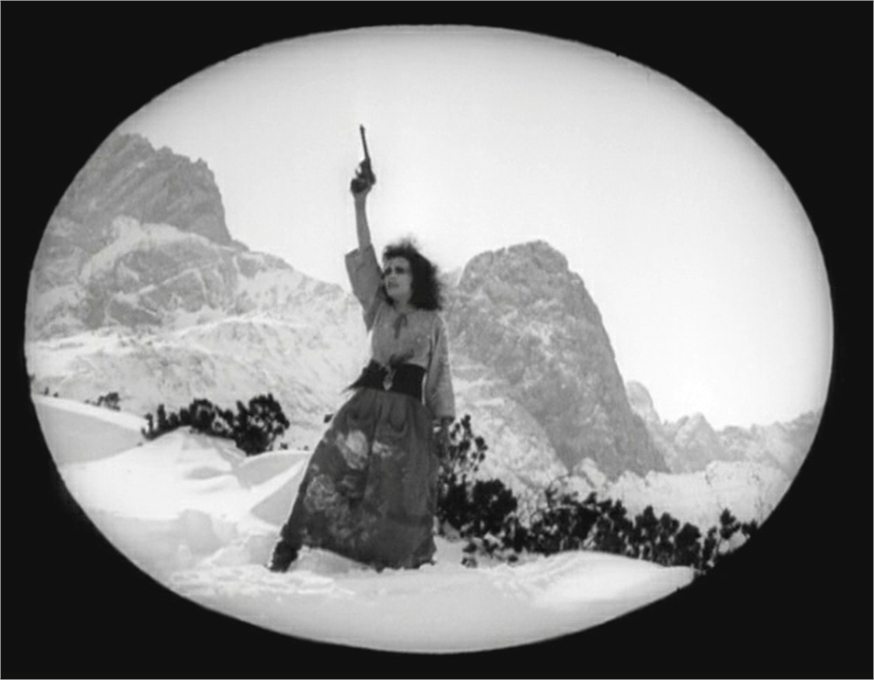
So when Mary Pickford asked him to come direct her in Rosalita for her
own production company, Lubitsch did not hesitate. He never came back to
direct again. He was the first of many European Jews and dissident film
people to make this journey to Hollywood. Lubitsch was later to form a group
that helped finance many of these people to leave and helped find them jobs
in America. It was an incredible transfer of talent that began to change
how films were made in America - giving them more polish, more sophistication.
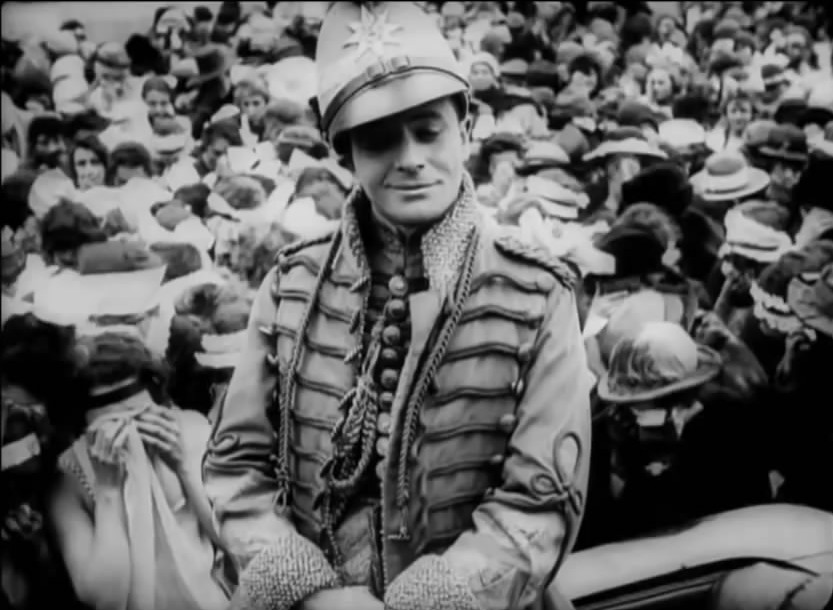
I have always been a fan of Lubitsch's talkies in Hollywood - he directed
a series of classic films that are well loved - Heaven Can Wait, Shop Around
the Corner, Trouble in Paradise, To Be or Not To Be, Ninotchka and Design
for Living - as well as some of Hollywood's earliest musicals with Jeanette
MacDonald - The Love Parade, Monte Carlo, One Hour with You and The Merry
Widow. In some of his silent films Lubitsch shows his love for musicals
with extended and complicated dance sequences with droves of people. I think
that once sound came he just loved being able to use dialogue, music and
singing in his films.
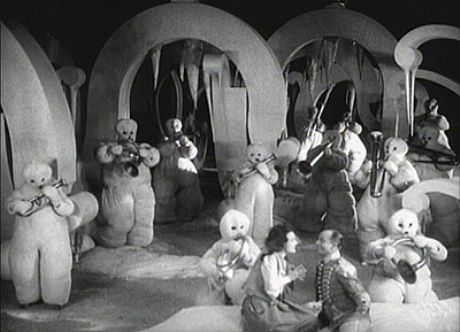
Most people like myself were totally unaware of his silent films though
- both in Germany and then in Hollywood for six years until he made Love Parade
in 1929. Most of them for years were thought lost (and many still are) or
were in terrible condition, but slowly a number of them have been restored
and are available - though a few strangely have not been released on DVD
such as So This is Paris (which is suppose to have a wonderful Charleston
dance number) and Eternal Love with John Barrymore. Lubitsch directed about
40 silent films in Germany and about ten in Hollywood. It is great to finally
visit some of his German films and I hope to check out some of the American
silent films as well at some point.
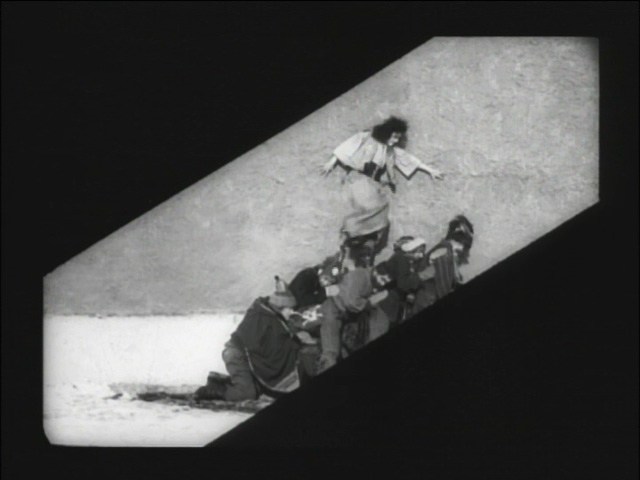
The Wildcat is another comedy fantastique that is very farcical, operatic
in movement and plot, set in a make believe country (something Lubitsch
was to do often) and decorated with sets and furniture that owe more to
an ornate ice cream dreamscape creation by children than to architecture.
To enhance and exaggerate this fantasy aspect Lubitsch constantly changes
the shape of the aperture the audience is looking through from circles to
hexagons, to a sliver of the screen, to looking through jagged teeth or a
mouth formed for a kiss. At 80 minutes it feels a bit stuffed with scenes
that seem to be done just to tickle Lubitsch's fancy without adding much
to the story. Such as a marriage among the brigands in which they pour snow
on top of the couple's heads and handcuff them together. The comedy feels
a little labored at times.
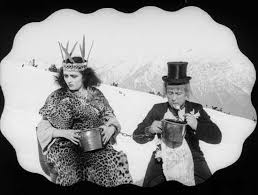
It is set in a military fortress on the border of this country with Victor
Jansen adorned with a giant moustache as the Commander. He receives a letter
that Lieutenant Alexis will be joining him soon - and the camera shifts
back to the barracks that Alexis is leaving where hundreds of women come
out to cry and say farewell and a flurry of children bid their father adieu.
On the way Alexis is held up by a band of brigands led by the chief's daughter
- who whips men's buttocks when they annoy her - who immediately falls in
love with Alexis and steals his pants as a memento and lets him go.
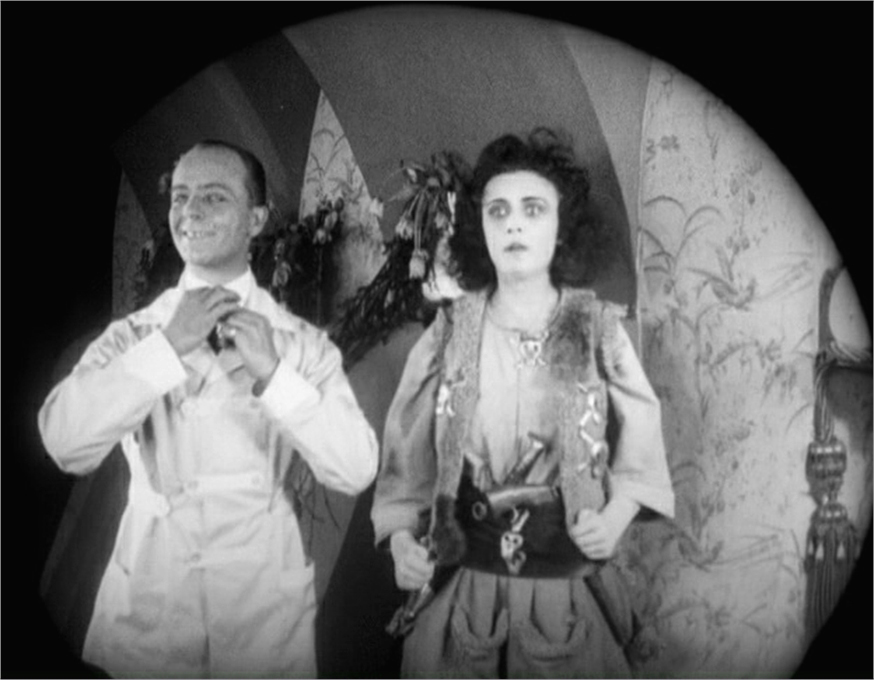
The film becomes this rather silly love story between this formal military
man and a savage woman living in caves with her band. I know taste changes
but it all feels a little incomprehensible because the actor who plays the
Lieutenant is Paul Heidemann who is as average as a bottle of milk. His
hair is receding like our rain forest, buck toothed with a large gap and
a nose more appropriate on a basset hound. He is also very wimpy and effeminate.
While the Wildcat is played by Pola Negri, a legendary actress known for
her tragedies, her fiery passion and sexual liaisons. She was to leave for
Hollywood in the same year Lubitsch did. A highly unlikely couple. Comedy
from this film does not seem to be her forte and Lubitsch would have done
much better with the manic Ossi Oswalda who he used for many of his comedies.
If I look at the Lubitsch German films that I have seen one theme becomes
clear - strong women and weak simpering men. The women drive the narrative
while the men just try and hang on - a trait that was to continue in many
of his Hollywood films.
